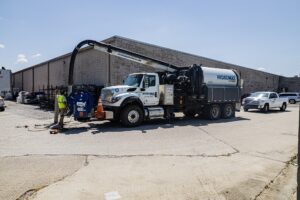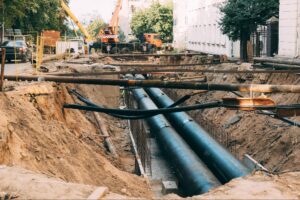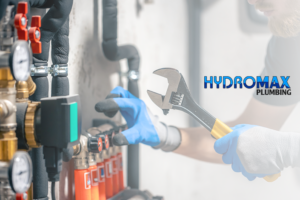Basement flooding is a challenge many homeowners face, often resulting in devastating consequences. When water infiltrates your basement, it can damage furniture, personal belongings, and appliances while threatening the structural integrity of your home. Beyond the immediate physical damage, prolonged damp conditions can promote mold growth, potentially affecting indoor air quality and health.
This article explores the common causes of basement flooding, reviews preventative techniques, and discusses professional plumbing solutions. Whether you want to shield your home against future flooding or address an ongoing issue, this guide provides valuable information and practical steps to help you take control of water-related risks.
Common Causes of Basement Flooding
Basement flooding typically results from a combination of environmental factors and vulnerabilities in building or plumbing systems. Recognizing these causes is the first step toward effective prevention.
Environmental Factors
Heavy rainfall is a key cause of basement flooding. During intense storms, soil around your home can become oversaturated, allowing water to seep through existing cracks in the foundation. Poor yard drainage often worsens the situation, enabling consistent water pressure against the foundation. Similarly, rapid snow and ice melt can produce large volumes of runoff that, if not directed away, piles additional pressure on basement walls, floors, and any gaps around utility entry points.
Structural and Plumbing Issues
Structural deficiencies such as cracked foundation walls—caused by soil movement, age, or improper construction—create entry points for water. Inadequate landscaping or yard grading may direct water toward your home rather than away from it. Internal plumbing issues, including aging or damaged pipes, hidden leaks, and corroded fixtures, can also lead to basement flooding. A failing sump pump, which often serves as the primary defense when ground or storm water builds up, further heightens the risk if it malfunctions or lacks a reliable backup power source.
In many circumstances, flooding may arise from a blend of these structural and plumbing concerns. Consulting professionals who can evaluate both the foundation and plumbing system is critical to identifying the best course of action—whether it’s targeted drainage improvements, specific plumbing repairs, or both.
Identifying Warning Signs of Basement Flooding

Early detection of potential flooding issues helps you take preventive measures before costly damage occurs. Be vigilant for:
- Persistent Dampness or Water Stains: Discoloration or damp spots on walls and floors point to moisture infiltration.
- Musty Odors or Mold Growth: A musty smell can indicate trapped moisture, while visible mold may reflect more serious water entry. Refer to EPA guidelines for mold prevention for best practices in maintaining healthy indoor air quality.
- Recurring Drain Backups or Slow Drains: Frequent backups or slow drainage might signal hidden plumbing issues or failing pipes.
- Cracks in Foundation or Walls: Widening or expanding cracks reveal structural weaknesses that water can exploit.
- Sump Pump Issues: Sump pumps that fail, cycle too frequently, or struggle during storms may indicate they are underpowered or need maintenance.
Address these warning signs promptly to reduce the risk of extensive water damage.
Proactive Plumbing Maintenance: Your Best Defense
Regular maintenance of your home’s plumbing is one of the most effective strategies for preventing basement flooding. Finding and resolving minor issues early can often avert bigger, costlier repairs.


Regular Inspections
Schedule routine plumbing inspections to spot worn pipes, hidden leaks, or vulnerable fittings. A professional evaluation can identify corroded materials, failing seals, or damaged drains that might become significant hazards if left unresolved.
Clean Drains and Pipes
Keeping your drains and pipes free of clogs is crucial. If plungers or standard methods fail to clear stubborn blockages, professional high-pressure water jetting can remove accumulated debris effectively and restore proper flow.
Maintain Gutters and Downspouts
When gutters efficiently channel water away from your foundation, they reduce the water pressure on basement walls. Clean them regularly, ensure they’re not sagging or leaking, and confirm that downspouts extend several feet away from your home to direct water downhill.
Test Your Sump Pump
Your sump pump should activate during heavy water events. Periodically pour water into the sump pit and confirm that it runs as intended. Also, clear discharge lines of debris to prevent backups. A battery backup system offers extra assurance in the event of a power outage.
Annual System Check-Ups
Consider an annual plumbing check-up. By catching subtle leaks or aging components in your pipes, you can bolster your home’s defenses against flooding and unexpected plumbing failures.
Advanced Plumbing Solutions to Address Basement Flooding
If basic preventive measures aren’t enough, advanced plumbing solutions may provide an added layer of long-term security. Properly chosen interventions can address chronic issues and protect your basement effectively.
Trenchless Pipe Repair
A minimally invasive method, trenchless pipe repair avoids extensive digging by installing a durable lining inside existing pipes. This seals cracks and prevents leaks while preserving landscaping.
Sump Pump Installation and Maintenance
A reliable sump pump gathers excess water and discharges it away from your home. In addition to a primary system, homeowners often opt for a backup unit or battery system to ensure continued operation during power interruptions.
High-Pressure Water Jetting
Professional plumbers can use high-pressure jets to scour away debris or sludge in your sewer and drainage lines, preventing recurring clogs. If you experience frequent backups despite routine drain cleaning, high-pressure jetting can dramatically improve water flow.
Video Camera Inspections
To pinpoint stubborn issues in hidden or buried lines, professionals may recommend thorough camera inspections to help diagnose structural pipe defects and identify localized blockages accurately.
Customized Solutions for Your Home
Every house has unique basement flooding risks. Customized strategies may include new drainage lines, foundation waterproofing, or updates to existing plumbing systems. It’s wise for homeowners to consult plumbing experts who can tailor a plan specifically for local conditions and provide ongoing support.
Preventative Measures to Protect Your Basement from Flooding

A proactive approach helps safeguard your basement from water intrusion. Although no strategy is entirely foolproof against extreme conditions, consistent preventative measures work to substantially reduce risk.
Ensure Proper Yard Grading
Verify that your yard slopes away from the foundation. If necessary, regrade or install French drains. Directing water downhill keeps it from pooling near basement walls where it can find the smallest cracks to seep inside.
Seal Cracks and Gaps in the Foundation
Periodically inspect foundation walls and floors. If you find small cracks, use waterproof sealants or epoxy compounds to seal them. Larger or recurring structural issues may need professional evaluation.
Maintain Your Gutter System
Clog-free gutters and well-positioned downspouts help prevent basement flooding. Consider gutter guards if leaves and debris frequently clog the system. Regular maintenance ensures water is consistently carried away from your foundation.
Apply Interior Waterproofing Measures
Waterproof paints, coatings, and vapor barriers may offer an additional layer of defense. Although they likely won’t solve advanced structural problems, they can minimize minor seepage and curb mold growth.
Responsible Waste Disposal
Flushing large or insoluble items down the drain can lead to clogs. Grease, wipes, coffee grounds, and other items often accumulate over time. Following proper disposal techniques keeps pipes unobstructed and your plumbing system working smoothly.
Regularly Inspect and Test Your Sump Pump
An operational sump pump is vital during heavy rains or rapid melt conditions. Test it frequently. Installing a battery backup gives you peace of mind if the power fails during storms.
The Role of Professional Plumbing Services in Resolving Basement Flooding Issues
Though proactive measures curb many basement flooding risks, more complex repairs may require professional assistance—particularly if you notice significant structural flaws, persistent water intrusion, or plumbing concerns that resist quick fixes.
When to Call a Professional Plumber
If damp conditions persist in your basement—even after routine maintenance—or you encounter sewage odors, persistent cracks, or slow-draining fixtures, it’s time to call a professional. Consult a qualified plumbing service for a thorough assessment and prompt assistance during problematic situations. Professional plumbers can fortify your home’s defenses with targeted techniques that address traps, clogs, leaks, and foundation risks.
Hydromax Plumbing: A Local Resource for Integrated Basement Flooding Solutions
Hydromax Plumbing, based in Evansville, Indiana, has built its reputation on quality service, a committed team, and customer-focused values. They are licensed, bonded, and insured, underscoring their dedication to providing reliable plumbing solutions. Their range of services includes trenchless pipe repair, sump pump installation, and various plumbing maintenance solutions to address water-related issues in residential, commercial, and industrial settings. For urgent issues like burst pipes or flooded basements that simply cannot wait, their team is on call to provide 24/7 emergency services to minimize damage day or night.
Protect Your Foundation and Your Peace of Mind
Basement flooding can create considerable stress by damaging structures, harming belongings, and sometimes leading to mold growth that affects your health. By understanding common causes, spotting early warning signs, and taking proactive measures—such as regular plumbing maintenance, yard grading, and responsible waste disposal—homeowners significantly reduce their water-related risks.
When your flood prevention efforts need professional assessment or a reliable fix, consider reaching out to a trusted local plumbing service. Contact Hydromax Plumbing for more information on basement flooding solutions and to schedule an inspection to secure the peace of mind you deserve.




